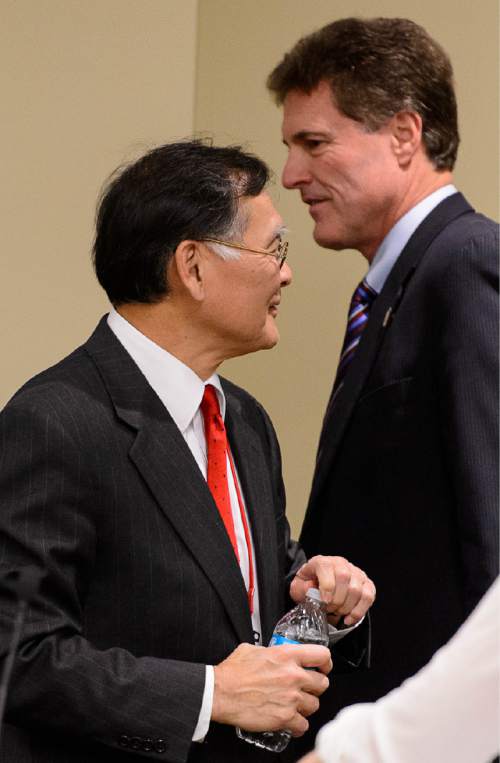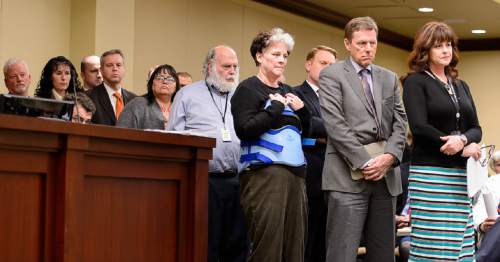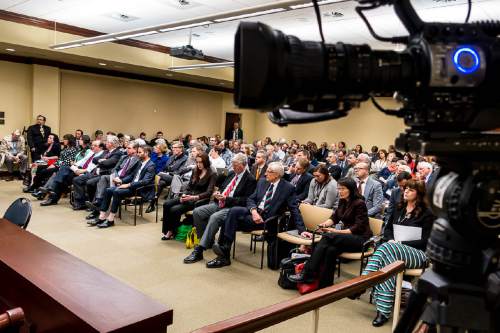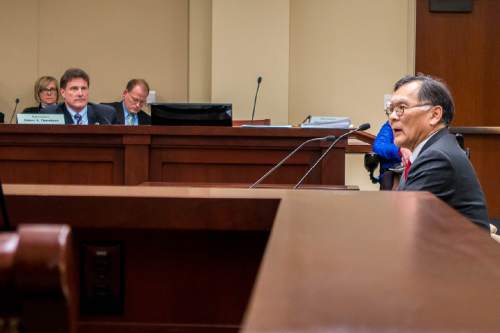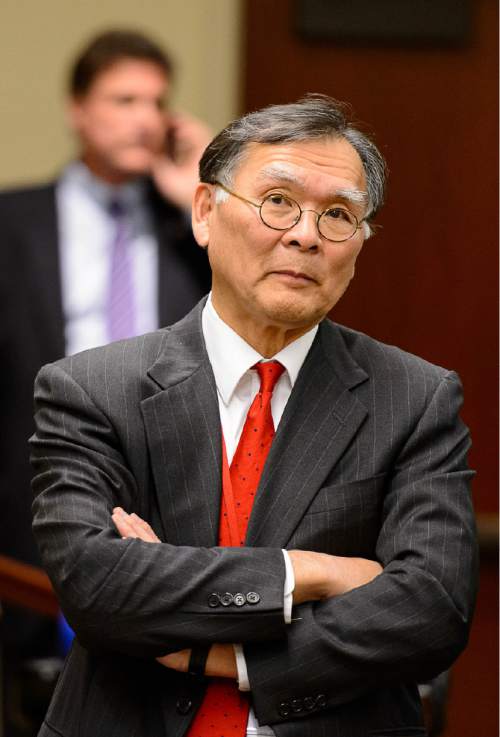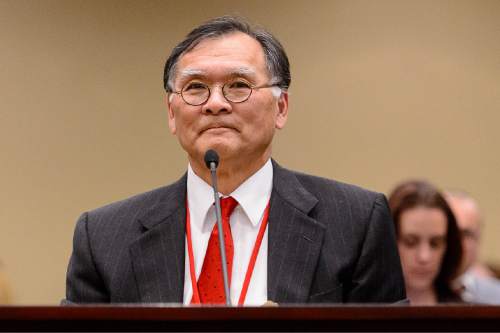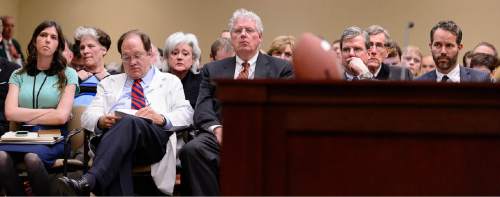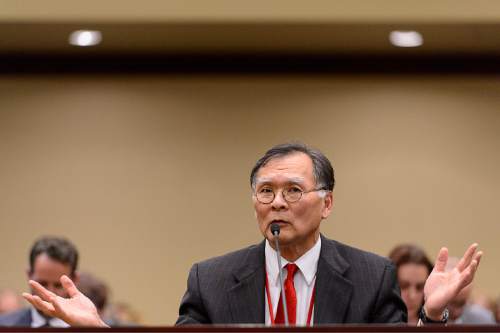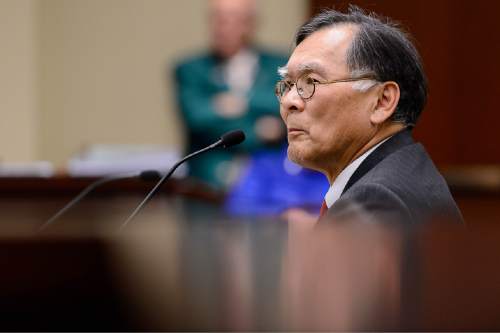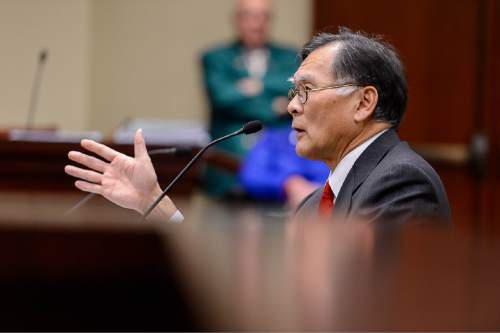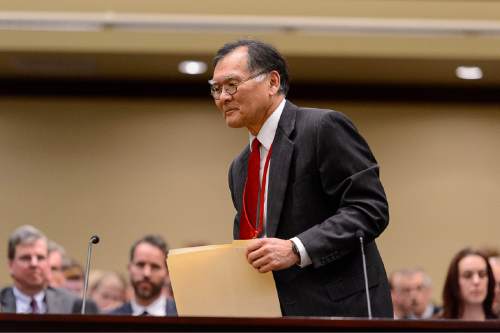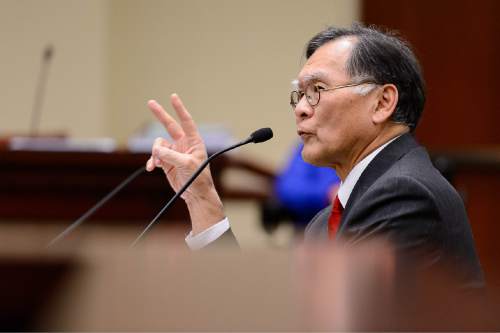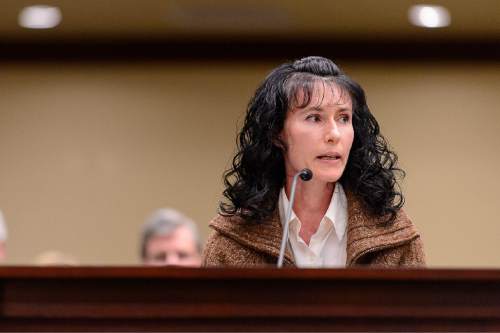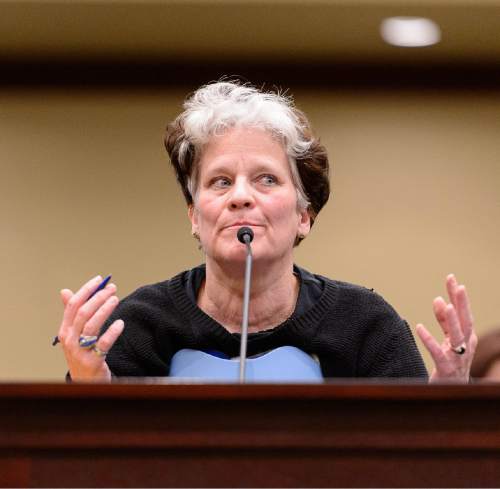This is an archived article that was published on sltrib.com in 2015, and information in the article may be outdated. It is provided only for personal research purposes and may not be reprinted.
A House committee Wednesday snubbed the governor's Healthy Utah plan but forwarded House Majority Leader Jim Dunnigan's Utah Cares plan for Medicaid expansion to the full House.
The House Business and Labor Committee voted 9-4 to kill SB164, the Healthy Utah plan that had already passed the Senate, and 9-4 to favorably recommend Dunnigan's HB446.
If the full House agrees, the two houses will have dueling bills on one of their biggest issues in the final days of the legislative session.
Or, as Sen. Brian Shiozawa, the SB164 sponsor said Wednesday, a union borne of compromise.
"We would like to see some marriage of these two ideas," Shiozawa told the committee.
But Dunnigan said, "It makes sense to go slow and to be conservative," an approach that he said describes Utah Cares. It would cost the state nearly $31 million next fiscal year and would cover 46,500 people who now aren't eligible for Medicaid or for subsidized health care on the federal exchange. "Utah Cares is a measured step," Dunnigan said.
Of those, 22,000 would get traditional Medicaid and 24,500 would join the 18,000 already on the state's Primary Care Network, coverage that pays for primary care, dental care and some prescriptions but not for specialists or hospitals.
"It's not a Cadillac plan, but it is good coverage," Dunnigan said.
During public comment, however, opponent Paul Gibbs likened the PCN to a Ford Pinto, and Jennifer Dailey, executive director of the Utah Academy for Family Physicians, said PCN is known as the "Pretty Crappy Network" among her group's 800 physicians.
"I know you all want to do something to help the people in this state, but make no mistake about it: This sets the bar breathtakingly low," Dailey said.
Charles Griffith of Magna, whose wife was not able to get surgery for a painful swelling in her wrist when the couple was on PCN, called it "not real insurance."
However, some of the public spoke for Utah Cares — after earlier supporting Healthy Utah.
Alan Dayton, Intermountain Healthcare's director of government relations, called Utah Cares "a great plan," and urged the lawmakers not to "jump over" such a good plan to get to the best, apparently referring to Healthy Utah.
When pressed by the committee on his dual loyalties, Dayton answered: "We prefer the plan that passes. That's my final answer," bringing a moment of levity to the long, tense meeting.
Committee members did not ask Dunnigan for details about the cost and benefits of his plan, but several said they will not support any compromise negotiated with the Senate.
"This is my limit," said Rep. Jon Stanard, R-St. George.
"It is hard for me to go any further than this," said Mike Schultz, R-Hooper.
Both Stanard and Schultz said they had polled their constituents and found the majority want no expansion of Medicaid — contrary to most public opinion polls, which showed broad public support for Healthy Utah.
Dunnigan argued that Utah Cares makes more sense, even though it would cost more than three times as much — an estimated $77 million — for the first two years.
By settling for the match Utah typically gets for Medicaid — 70 percent federal and 30 percent state — Utah will have more control, can change enrollment caps and could avoid being vulnerable to Supreme Court decisions and a change in presidential administration, under the Dunnigan plan.
Gov. Gary Herbert had negotiated for the Obama administration to cover 100 percent of Healthy Utah early on. The match would fall to 95 percent halfway through the second year.
He secured that only by agreeing to cover those up to 138 percent of the federal poverty level, although those over the poverty level already qualify for subsidized health insurance.
Some two dozen Healthy Utah supporters — and three opponents — spoke on the bill, including low-income people with medical problems and industry and medical professional groups.
Pat Fleming, a former Salt Lake County behavioral health professional, noted that the Legislature's criminal justice reform hinges on Healthy Utah. PCN coverage, which would apply to two-thirds of those under Utah Cares, does not cover mental or behavioral health, he said.
Dunnigan said he's open to the idea of trying Healthy Utah in two years, if it appears the state can get more flexibility — and a higher federal match — under a new presidential administration.
The committee's rejection was predicted by House Speaker Greg Hughes, who until Tuesday had refused to let Healthy Utah be heard in a House committee.
Twitter: @KristenMoulton


